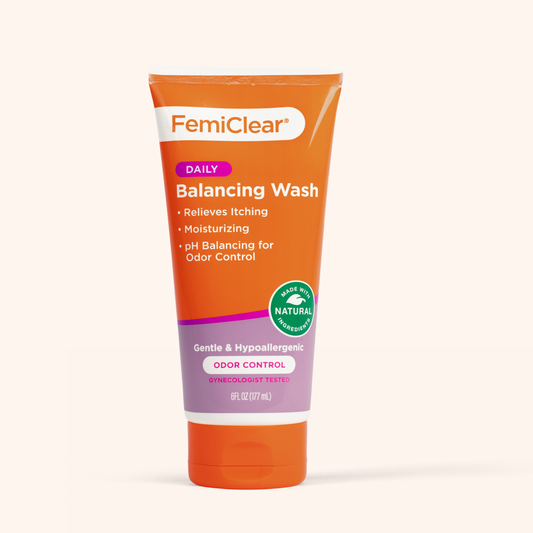Table of Contents
Table of Contents
Why You Should Stop Faking Orgasms
Written by Jordan Liffengren Aug 24, 2023

Have you ever faked an orgasm? The big “O” is the perfect end to an incredible evening. But sometimes, we don’t reach the finish line as expected. And that's completely okay! There are a ton of reasons why we may not achieve an orgasm. But thanks to unnecessary stigma and pressure from society, our partner, or even ourselves, it’s easy to feel embarrassed or guilty when we don’t quite “get there.” We're made to feel like we have to fake an orgasm to keep the good vibes going.
It’s time to break free from these unrealistic expectations and ensure our sideways tango is an enjoyable and fulfilling experience for both parties. Let’s dive into the reasons why we fake orgasms, the benefits of leaving this trend behind, and how to better communicate with your partner about sex.
Why Do Women Fake Orgasms?
With nearly 60% of women and 25% of men in the US having faked an orgasm, it turns out a huge number of us have "faked it." Many people who find themselves pretending also share something else in common: they're hesitant to chat openly about their desires in the bedroom.
According to a study on women’s motivation behind faking an orgasm during oral and sexual intercourse, the top reasons were:
- Altruistic Deceit: she wants to make her partner feel good and/or she doesn’t want to hurt her partner’s feelings.
- Fear and Insecurity: she wants to avoid tying negative emotions to the experience.
- Elevated Arousal: she wants to increase her own arousal and satisfaction.
- Sexual Adjournment: she wants the experience to end.
- Insecure Avoidance: she feels insecure or embarrassed.
- Fear of Dysfunction: she is worried that she can’t reach orgasm.
Why Can’t I Orgasm?
It’s quite natural for a woman to have experienced orgasms many times before, only to go through periods of time where orgasms are less frequent or absent. In fact, about 1 in 3 women do not experience orgasms, and only 18.4% of women are able to orgasm from vaginal sex.
Difficulty reaching an orgasm can be a result of several things:
- Hormone changes, for example after childbirth or during menopause
- Certain medical conditions
- Anxiety and depression
- Painful sex
- Vaginal dryness
- Not being stimulated enough
- Medicines
- Worries or fears about having sex
- Lack of self confidence
- Use of recreational drugs, alcohol, or smoking
- Relationship worries
- Stress or emotional distress
- History of trauma or unwanted sexual contact
Whatever the reason may be, it is important to communicate with your partner and feel comfortable enough to have an honest and open discussion with them about sex. And, if you’re worried or unhappy about your amount or frequency of orgasms, we encourage you to talk with your doctor, who will have plenty of valuable advice and resources!
Why You Shouldn’t Fake An Orgasm
When we think about faking an orgasm, many might assume it's a harmless way to boost our partner's confidence or perhaps to end an encounter that's not quite doing it for us. However, the act of faking can have deeper implications on our emotional well-being, our self-worth, and our relationship dynamics.
- The Cycle of Disconnection: By not being genuine about our sexual experiences, we create a pattern of inauthenticity in our relationships. Over time, this can lead to feelings of isolation or disconnection from our partner.
- Mental Health Impact: Consistently faking orgasms can result in decreased self-esteem and heightened anxiety. If we're constantly concealing our true feelings, it can cause a sense of fraudulence and create a barrier to genuine intimacy.
- Reinforcing Unrealistic Expectations: When we pretend to climax every time, it sets a false expectation about the female body, which might perpetuate the myth that women can and should orgasm from penetration alone.
How to Move Forward
- Educate Yourself: Understand your body. It's a known fact that many women can't orgasm from penetration alone and require clitoral stimulation. There's no "right way" to experience pleasure. It’s essential to remember that every body is unique.
- Open Communication: As daunting as it may seem, having a candid conversation with your partner can pave the way for more satisfying encounters in the future. It's all about mutual respect and understanding. Explain to them why you felt the need to fake it and discuss ways to improve the experience for both of you.
- Seek Professional Guidance: If you consistently find it challenging to reach orgasm or experience discomfort during sex, consider seeking advice from a sexual health professional or therapist. They can provide expert insights, techniques, and strategies to enhance your intimate experiences.
The big "O" might be the climax of a sexual encounter, but it's essential to remember that intimacy isn't just about the destination—it's about the journey. It’s about connection, mutual respect, and understanding. Instead of "faking it," let's pledge to be genuine with ourselves and our partners. After all, authenticity is the foundation of true intimacy. So, the next time you're tempted to put on a performance, remember: your feelings, desires, and experiences are valid. It's okay to prioritize your pleasure and seek the genuine, fulfilling intimacy you deserve.
Written by Jordan Liffengren Aug 24, 2023

UTI Infection Protection Vulva Cream
Stop infection before it starts
Learn More
























